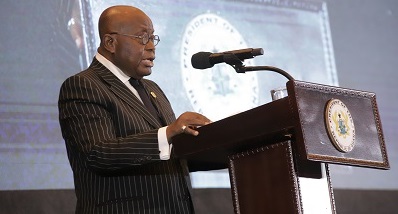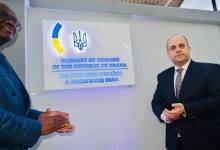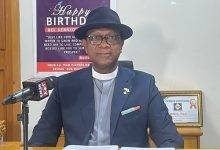
Members of the African Union (AU) have met in Accra to deliberate on the re-emerging trend of unconstitutional change of governments on the continent, among other security issues.
The three-day reflective forum, organised by the AU Peace and Security Council, brought together governance and security experts on the continent to find solutions to the problem.
The outcome of the forum will be presented to the AU Extraordinary Summit scheduled to take place on May 27 in Malabo, Equatorial Guinea. It will form the basis for the drafting of additional protocols to the African Charter on Democracy, Elections and Governance.
President Nana Addo Dankwa Akufo-Addo opened the forum yesterday and described the rate of coups d’etat on the continent and the manipulation of constitutions by incumbent governments as very disturbing.
He said the resurgence of coups d’etat was a setback to development and called on all stakeholders to help address it to accelerate socio-economic advancement of the continent.
“Coups d’etat undermine our collective bid to rid the continent of the menace of instability, and unconstitutional changes in governments.
“There are those who hanker after authoritarian personal rule because they claim Africa is underdeveloped and democracy is cumbersome and we need to get things done in a hurry.
“There are those who seek short cuts to office to exercise power without limits, and there are those who have no respect for the free choices of our sovereign people because they do not accord with their so-called ideological preference,” he said.
President Akufo-Addo pointed out that there was a need to convince people that the continent was safer under democratic rule, rather than authoritarian leadership.
Citing a report by the African Centre for Strategic Studies, the President said about 24 African countries had resisted efforts to institute constitutional term limits for governments.
“In most of the situation where incumbents have not respected term limits, they have argued that the basis for hanging on to power is in response to popular pressure by their people to remain in office and their term limits have no meaning in poor underdeveloped society where uplifting citizens is of the highest priority.
“Others also believe that leaders should remain in office if they continue winning elections, however, the electoral processes that have been used to serve term limits extensions or removals in Africa have often been marred by allegations of widespread irregularities. Ruling parties apply this route usually to enjoy near total control of most, if not all, the levers of government and the electoral machinery,” he said.
In a speech read on his behalf by the Commissioner, Political Affairs, Peace and Security at the African Union Commission, Bankole Adeoye, the Chairperson of the African Union Commission, Moussa Faki Mahamat, said the leadership of Africa and her citizens were genuinely concern about what appeared to be resurgence of unconstitutional changes of governments.
He said the then Organisation of African Unity (OAU) and now the African Union (AU) over the decades sought to effectively respond to this plethora of challenges, stressing that “Relevant normative and policy frameworks exist at regional and continental level.”
Mr Mahamat said the forum therefore was to provide and mount a robust platform for broad stakeholder discussions on the issues at stake.
To this end, he said it was important for the Union to deliver incrementally on the mandate of the AU by recommitting to the ideals of democracy, good governance and the rule of law.
“Your excellence, the African Union Commission remains steady in working effectively to promote early warning response, conflict prevention and synergy building among all stakeholders vertically and horizontally,” he said.
Mr Mahama noted that the forum would feed into the AU effort at leadership level that would address issues of terrorism and unconstitutional changes of governments at the Malabo Summit.
BY CLIFF EKUFUL, YAW KYEI AND BENEDICTA FOLLEY








